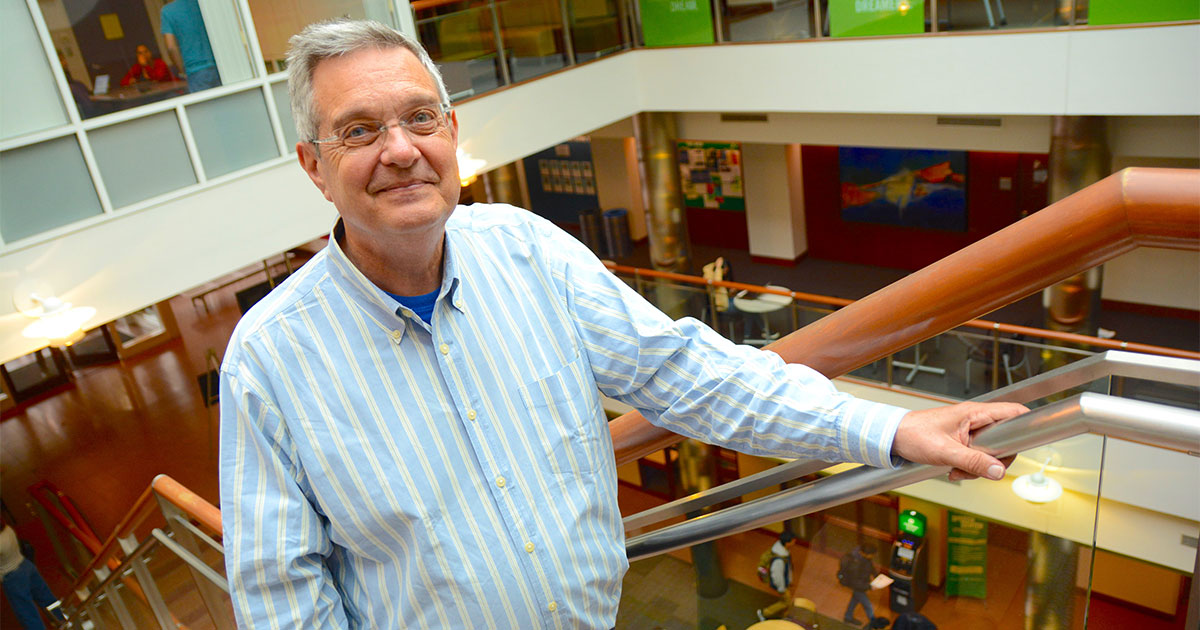How Will I Create the Future?

Through the years, William Gartner has met thousands of entrepreneurs. With very few exceptions, he finds them to be positive, upbeat people.
“I can’t think of any other group of people I’d rather be with,” says Babson’s Bertarelli Foundation Distinguished Professor of Family Entrepreneurship. “They are the happiest people I’ve ever been around.”
Perhaps that shouldn’t be surprising. Entrepreneurs can’t help but be joyful and optimistic. Through their ideas and ventures, they’re hoping to remake how we live. “They have some say on how the future will be created,” says Gartner. “They are involved in new and interesting things, and they are involved in changing the world in really interesting ways. People become entrepreneurs because they want to make something cool happen.”
Gartner has been looking at the lives of entrepreneurs for roughly 40 years. At Babson, where he joined the faculty in 2017, he is part of the Institute for Family Entrepreneurship, a hub for research, resources, and programming focused on entrepreneurial students and their families.
Gartner is interested in how families start businesses, pass them from generation to generation, and support each other through the ups and downs. In all family matters, communication is critical. “The family dynamics are often more important than the business dynamics,” he says.
William Gartner Says the Answer Is Yes
At Babson, Gartner comes to a place that proclaims that everyone can be an entrepreneur, something that he has long believed. Far too often, he says, people think entrepreneurs are born with certain unique traits that enable them to do what they do. “I never want a student to ask, ‘Am I an entrepreneur?’” Gartner says. “The answer is yes. The question should be, what kind of entrepreneur am I? How will I create the future?”
Gartner remembers well his introduction to entrepreneurship education. The first entrepreneurship course he took was as an MBA student in 1977, a time before the entrepreneurial success of Apple, Microsoft, and other tech giants captured the public’s imagination. Six students started the course at the University of Washington. By the end of the semester, two were left. “That’s how much interest there was,” says Gartner. “The 1970s were about corporate America.”
“I never want a student to ask, ‘Am I an entrepreneur?’ The answer is yes. The question should be, what kind of entrepreneur am I? How will I create the future?”
William Gartner, professor
Much has changed since those times. At Babson, Gartner relishes the emphasis on the humanities. “The humanities have a lot to say about entrepreneurs,” says Gartner, who believes philosophy, history, and literature can all help to understand an entrepreneur’s way of thinking. “The humanities, especially literature, are about the imagination. In order to be an entrepreneur, you have to be imaginative.”
Just consider the way entrepreneurs talk about their ventures. “Entrepreneurs are linguistic innovators,” Gartner says. “In order to make the future happen, you have to talk in new and interesting ways. You exercise your imagination to get people to understand what you’re talking about.”
A Transformation
Gartner’s love of the humanities was evident when he was interviewing to come to Babson. When giving a presentation of his research, he had everyone in the room play a part in act 1, scene 1, of Shakespeare’s King Lear. “What better way to teach family dynamics than talk about King Lear?” says Gartner.
The play illustrates one of the common issues that family businesses face: succession.
In its offerings, the Institute for Family Entrepreneurship focuses on enabling the next generation of a family business to act entrepreneurially. “Succession is not an issue of transfer. It’s an issue of transformation,” says Gartner. “Once you think of transformation as an opportunity, not a threat, you see everything differently. You see the successors differently. They want to succeed and make their own mark in the world.”
Once families start thinking and acting entrepreneurially, their businesses may be taken in unexpected directions, or they may start a new venture altogether. “Families see themselves in new ways,” says Gartner. “It is very energizing. That is the genius of entrepreneurship. You just never know where it is going to take you.”




